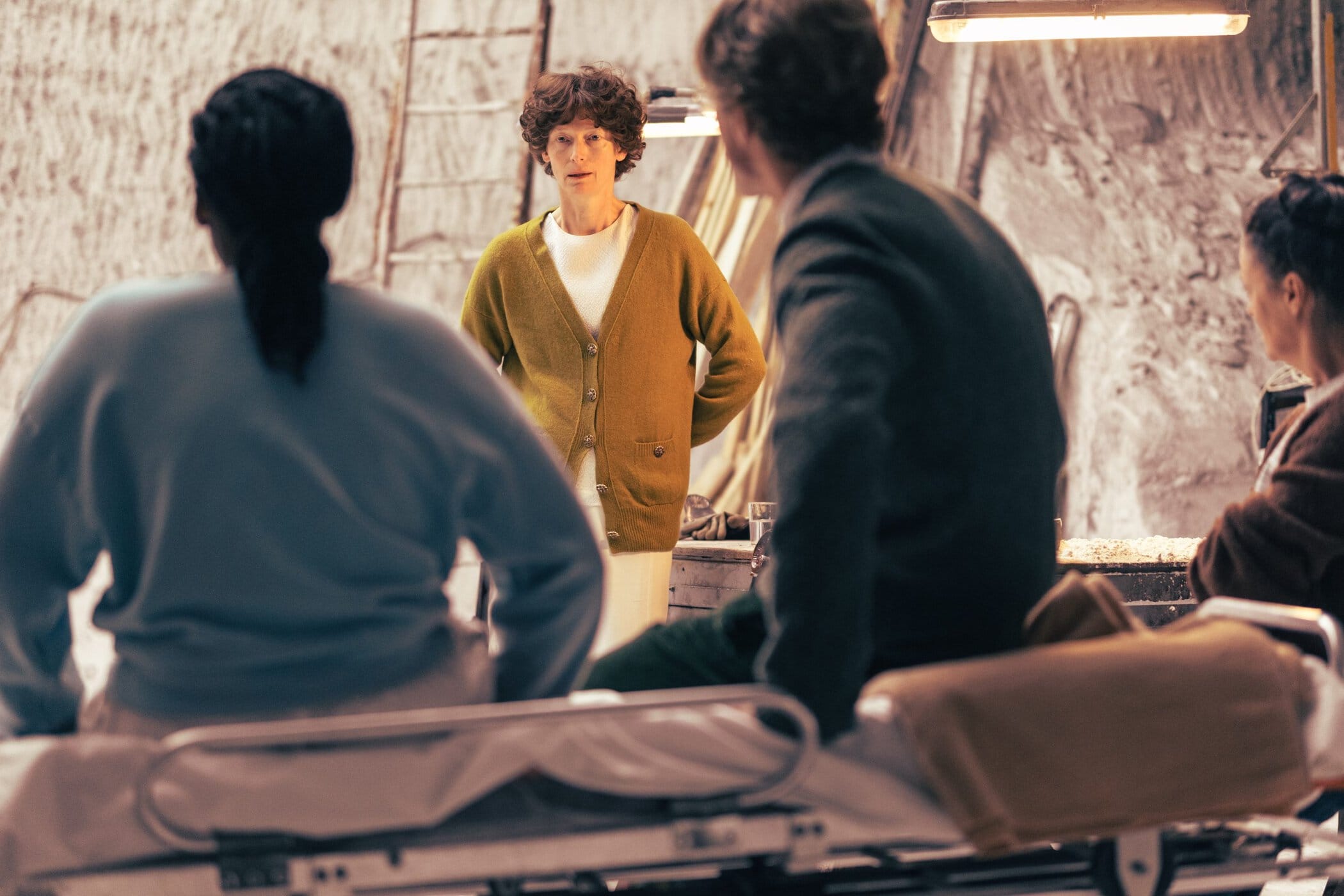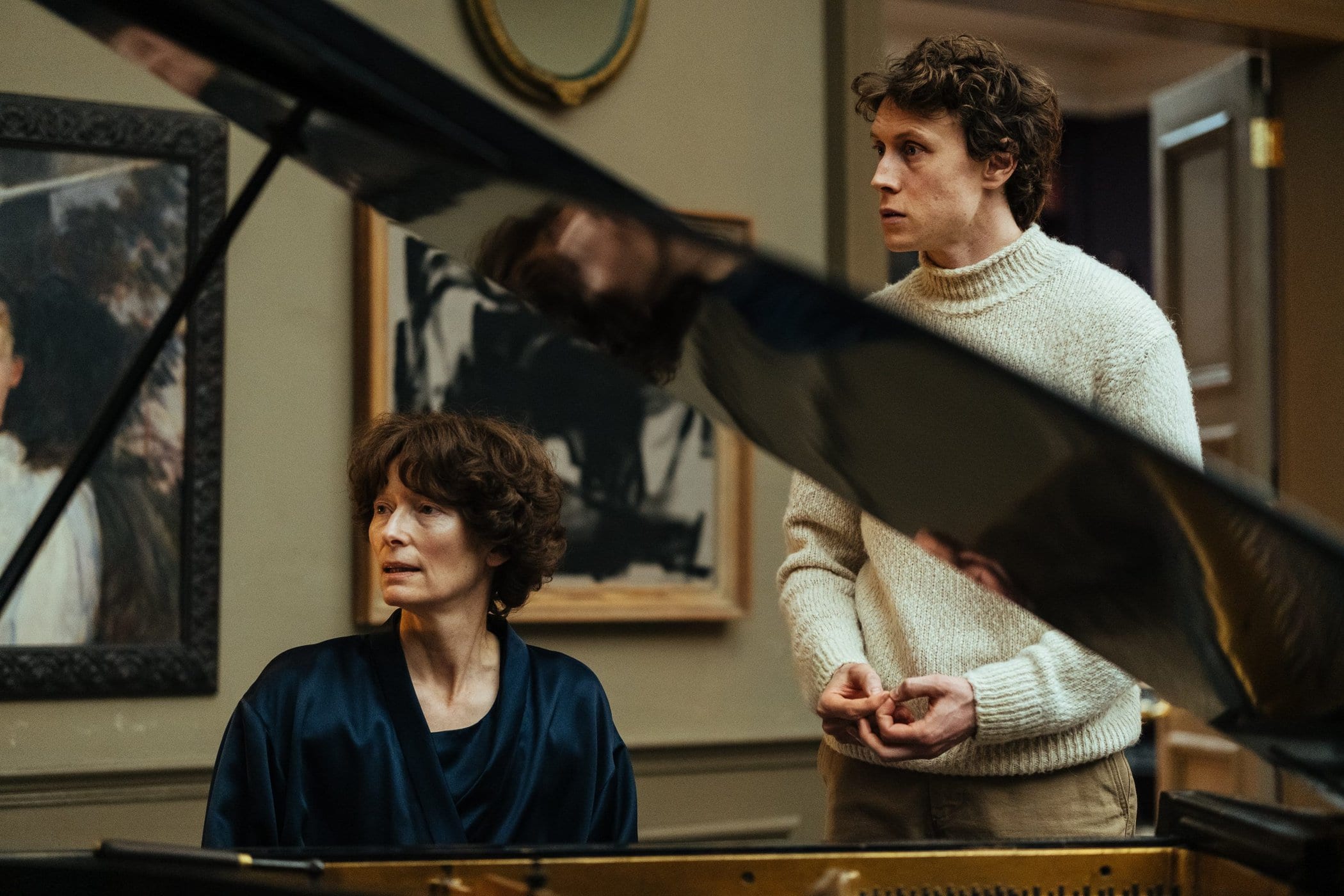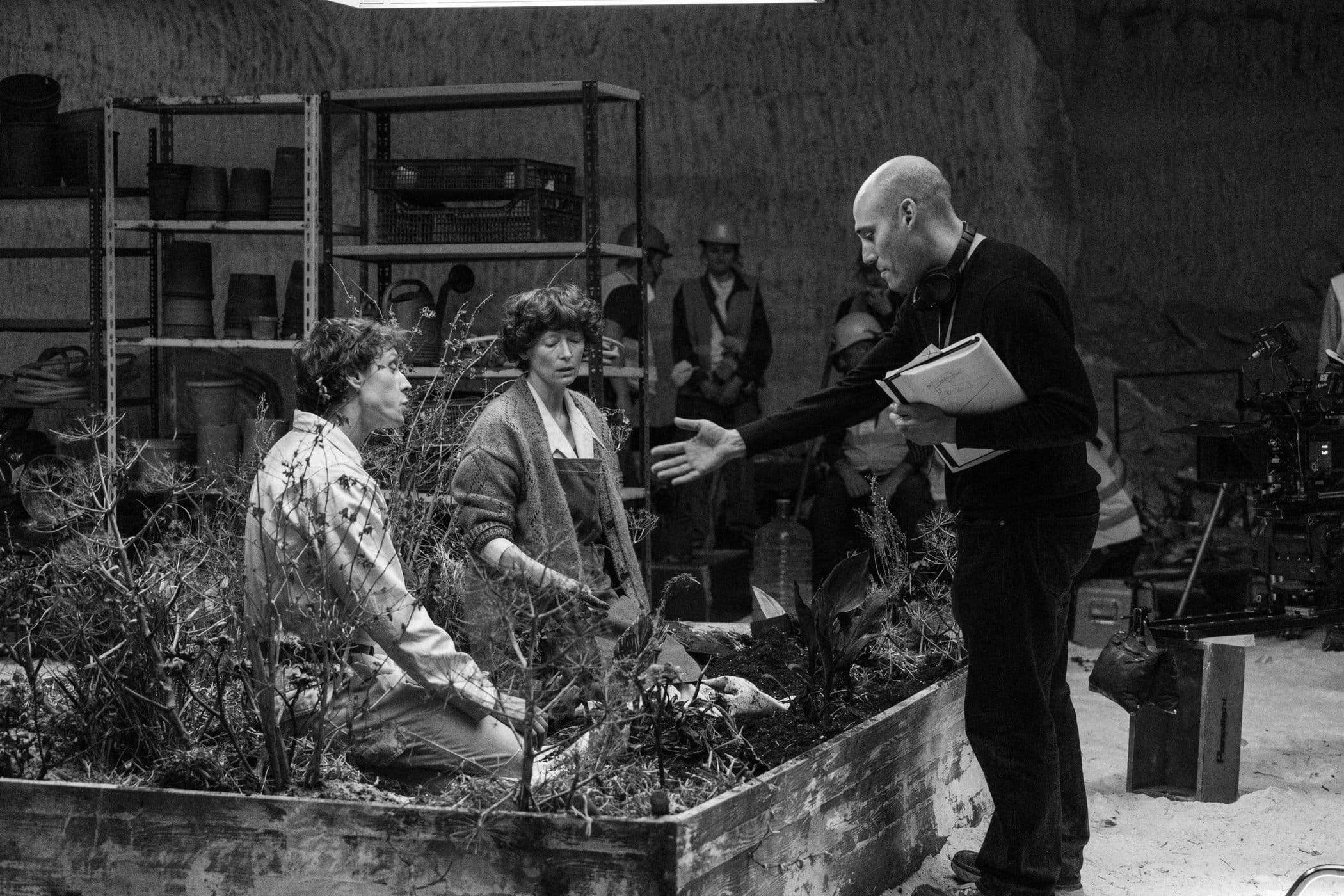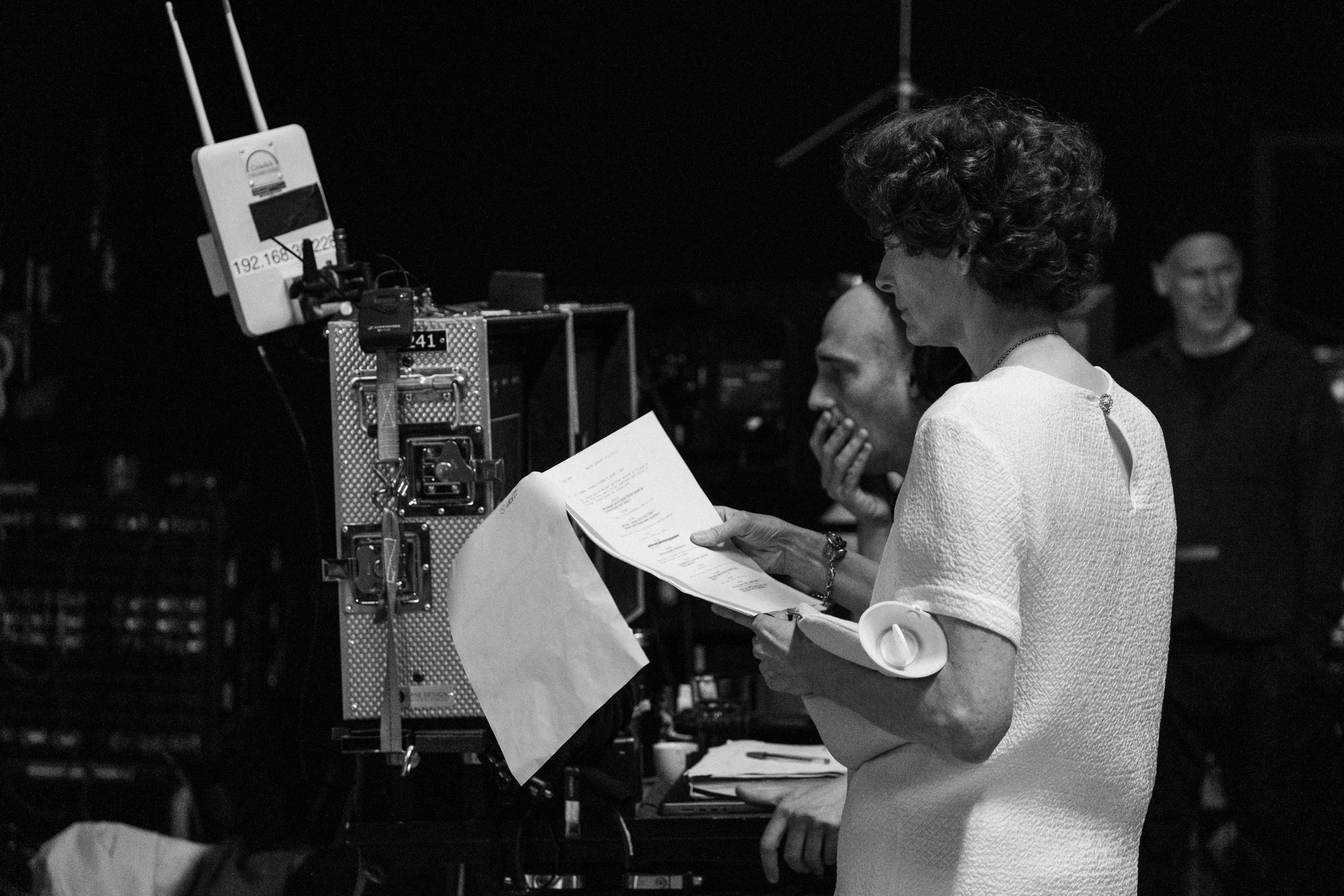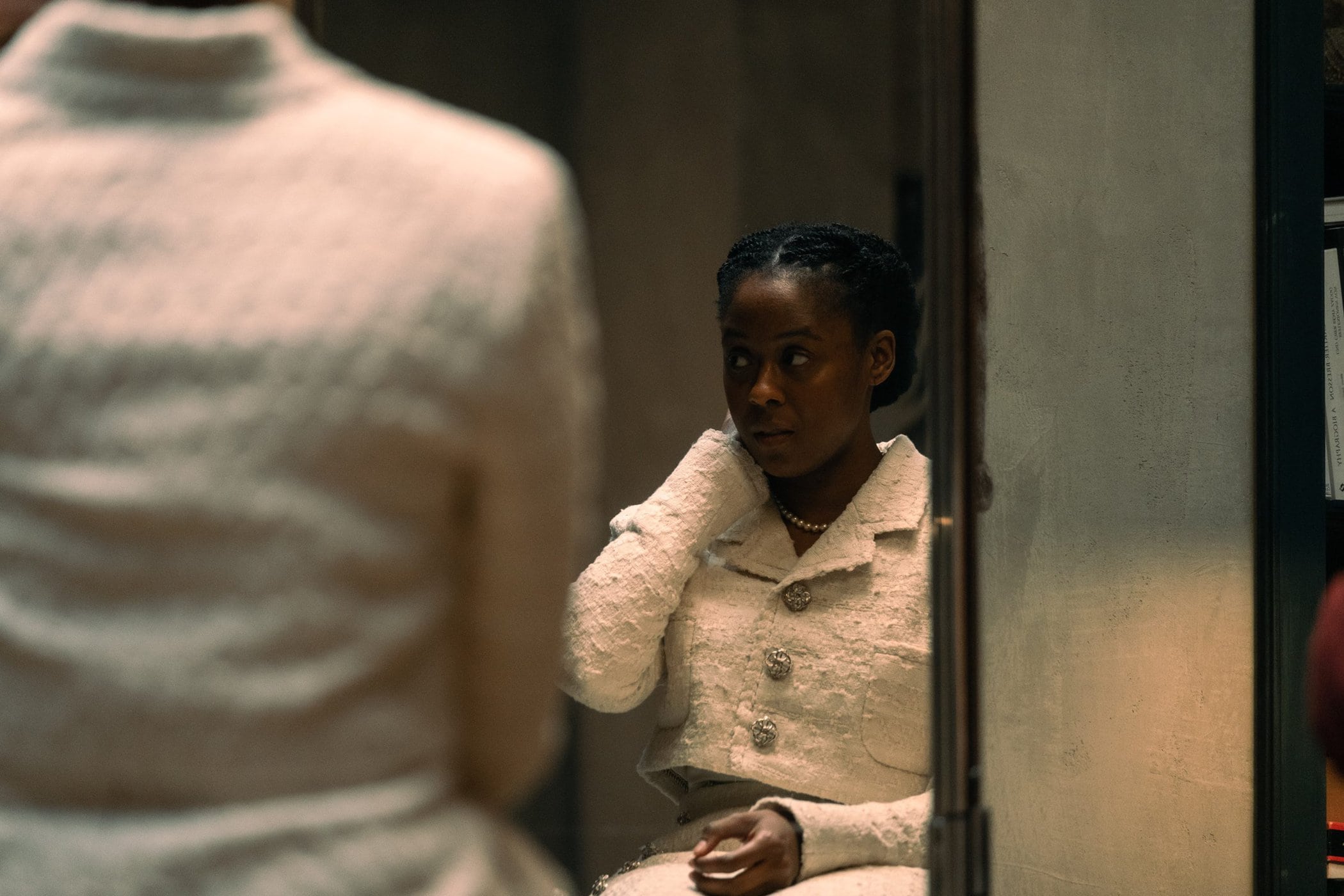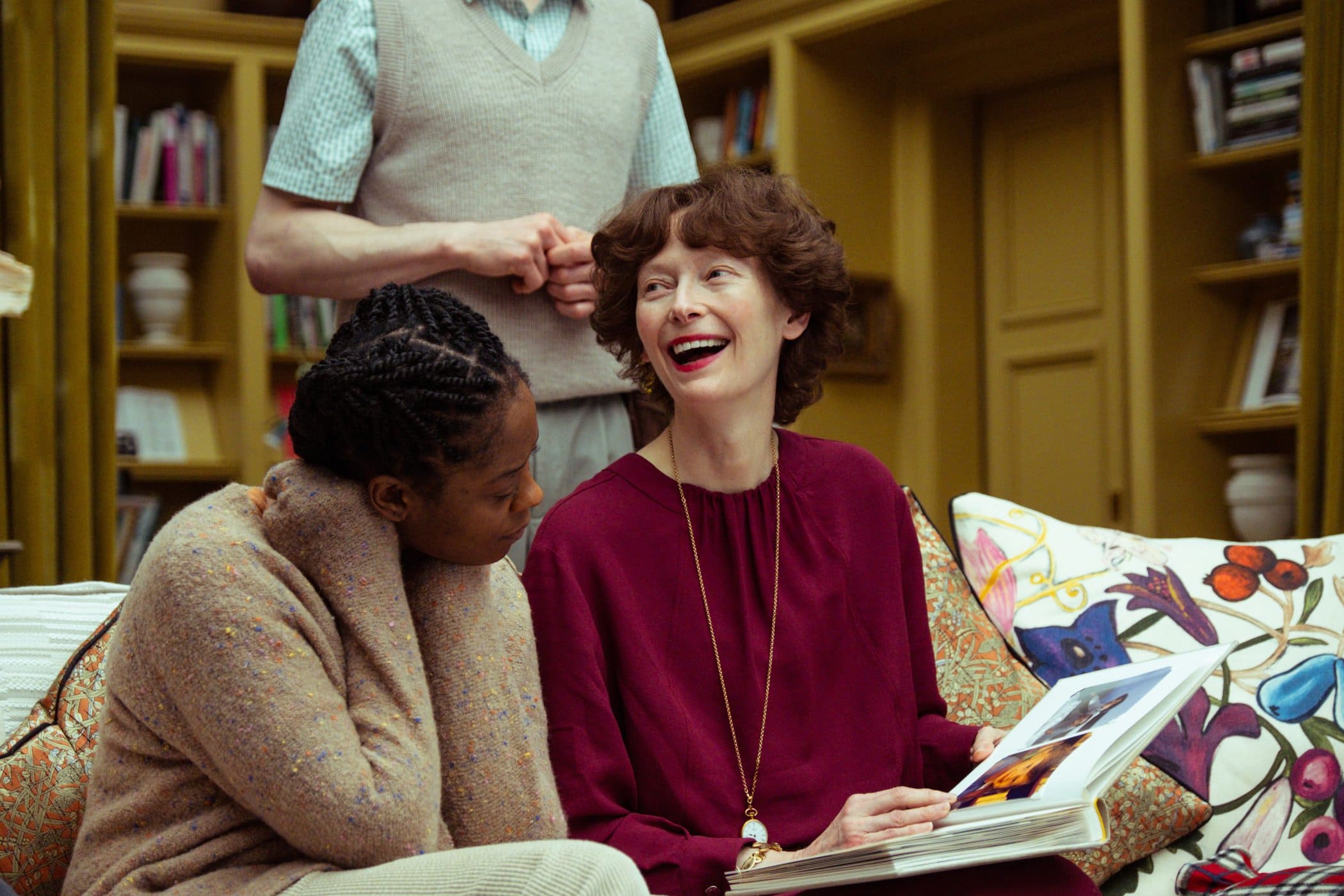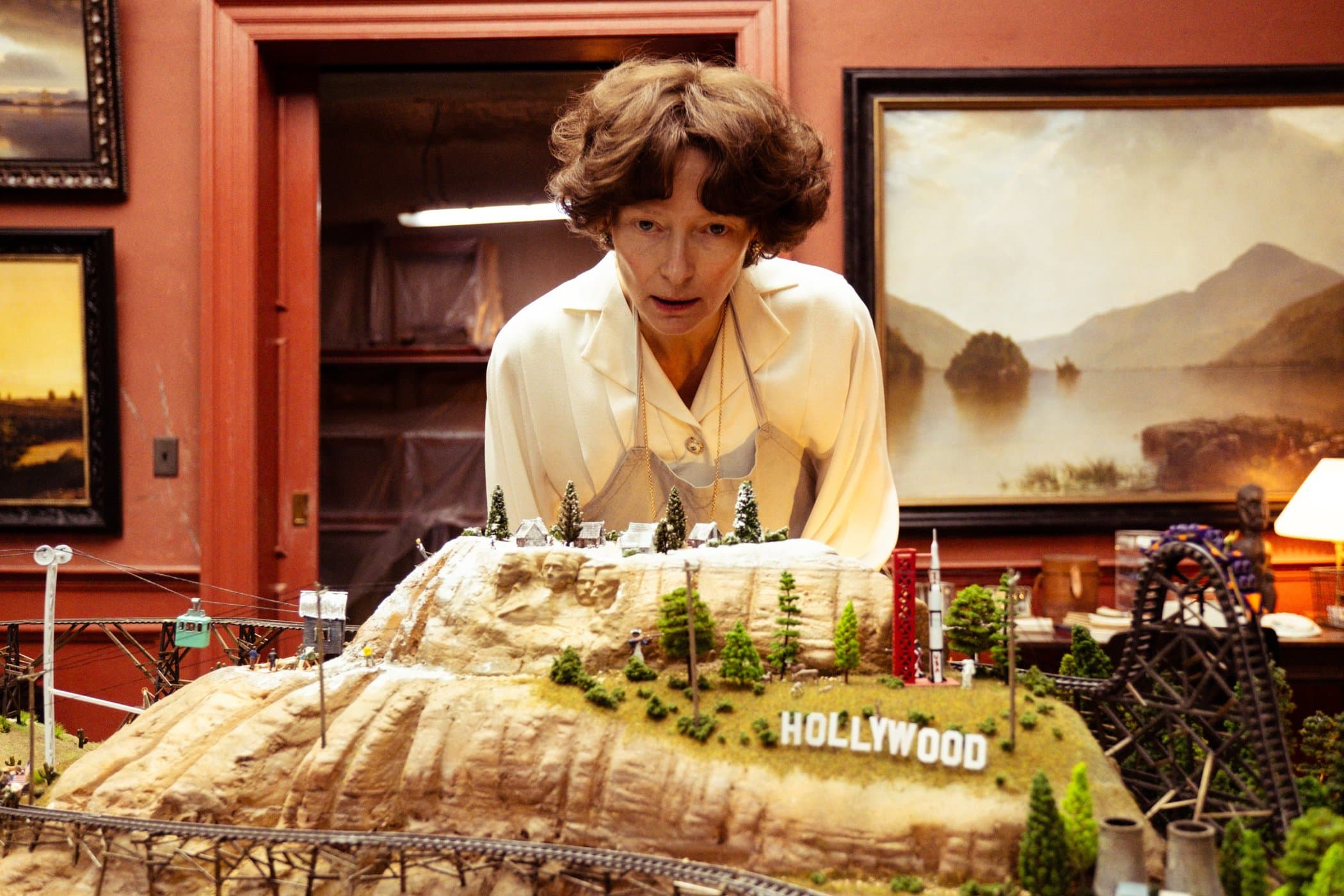A Golden Age Musical Examines Climate And Social Challenges Through A Unique Cinematic Lens
The house of Chanel has taken a supportive role in helping Joshua Oppenheimer’s The End, a Golden Age musical about the end of the world, come to life. The film premiered at the Telluride Film Festival on August 31st, followed by screenings at the Toronto International Film Festival and the San Sebastian Film Festival.
A wakeup call about the threats posed by the climate catastrophe and social inequality, The End illuminates the importance of honesty, forgiveness, and love – as well as an inclusive embrace of the broader human family, on which all of us and everything we hold dear ultimately depends.
Shot in salt mines in Sicily and Germany, this film is set in a luxurious bunker half a mile underground. Surviving there is one of the last human families: Mother (Tilda Swinton), Father (Michael Shannon), Son (George Mackay) and Girl (Moses Ingram). Composed music by Josh Schmidt and lyrics by Joshua Oppenheimer emerge from the spoken scenes. Through songs suffused with longing, the family members struggle to find hope, love, and redemption.
Chanel has contributed to the creation of this hotly anticipated work, demonstrating the House’s commitment to emerging, ambitious and engaged creativity. This is the director’s first narrative feature, following several documentaries (The Act of Killing in 2013 and The Look of Silence in 2015) which won awards at the Venice Film Festival and the British Academy Films Awards, and were nominated for Oscars in 2014 and 2016. The End’s power and resonance derives from its artistic audacity, its social urgency, and performances of a cast led by a known Tilda Swinton, a Chanel ambassador for over a decade. She portrays Mother, an aesthete with a passion for art who tries, against all odds, to escape her past by preserving a semblance of beauty in the fragile, artificial bubble that is the bunker. She sets her invulnerable elegance against the dead-end repetition of the family’s daily routine. The way she dresses is a way of standing her ground, asserting her existence, and suppressing her trauma in a world on the brink. More than just costumes, the ten silhouettes designed by Chanel in collaboration with costume designer Frauke Firl (Antichrist by Lars von Trier in 2009, Hannah Arendt by Margarethe von Trotta and Munich: The Edge of War by Christian Schwochow in 2012) have a narrative importance that once again magnifies Tilda Swinton’s singular presence. In various scenes, the actress wears a tweed suit with autumnal checks, navy silk pyjamas, a red silk ensemble of a skirt and blouse with a lavallière collar from the 2021/22 Métiers d’art collection, a swimming costume from ERES, shoes and jewellery from Chanel. The character played by Moses Ingram also wears a BOY·FRIEND watch in beige gold, and two Chanel pieces: an apricot dress created especially for the film and a cream-coloured suit inspired by the Spring-Summer 2020 Haute Couture collection. Worn at the end of the film, this outfit becomes the symbol of an act of assimilation into the family, a renunciation of her past to win the comfort and acceptance of a community built on delusion and fantasy.
